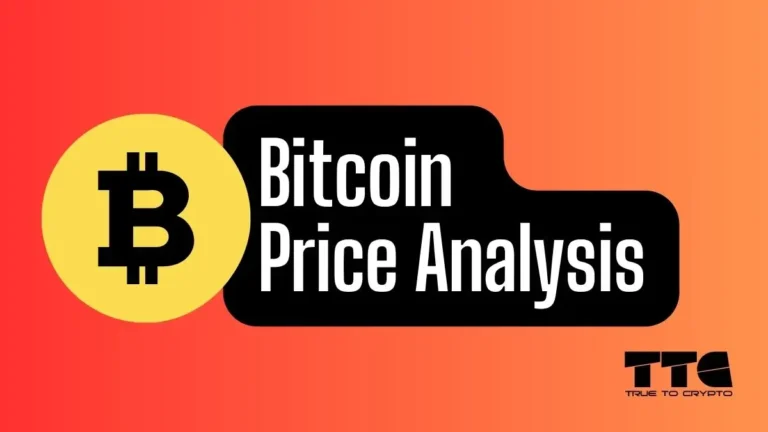South Korea’s cryptocurrency giant Dunamu, parent company of the nation’s dominant exchange Upbit, has announced a significant increase in shareholder dividends, tripling the payout from the previous year. The decision, follows a remarkable financial turnaround, with the company reporting an 85% year-over-year surge in operating profit for 2024. This milestone underscores the resilience of South Korea’s crypto market and Dunamu’s pivotal role within it, even as global regulatory landscapes shift.
Dunamu’s latest financials offer a clear snapshot of its success. In 2024, the company posted operating profit of 1.19 trillion KRW (approximately $811 million), up 85.1% from 2023’s figures. Revenue climbed 70.5% to 1.73 trillion KRW ($1.3 billion), while net income grew 22.2% to 983.8 billion KRW ($671 million). These numbers mark Dunamu’s strongest annual performance to date, reversing a challenging 2022 when profits plummeted 76% and a 2023 net income dip of 81%. The company attributed the rebound to heightened trading activity on Upbit, spurred by Bitcoin’s price rally following its April 2024 halving, which reduced daily issuance from 900 to 450 BTC.
Upbit, holding over 70% of South Korea’s crypto trading volume, has been the engine behind Dunamu’s gains. With 9.6 million registered users—nearly one in five South Koreans—the exchange oversees assets valued at more than 100 trillion KRW ($68 billion). Trading commissions, a core revenue stream, reflecting a global market cap nearing $2 trillion. Dunamu Chairman Song Chi-hyung, a key shareholder, stands to receive an estimated $53 million from the tripled dividend, though exact payout details remain undisclosed pending shareholder approval.
The profit surge aligns with broader market dynamics. The U.S. Federal Reserve’s interest rate cuts in late 2024 injected liquidity into financial markets, boosting investor appetite for risk assets like cryptocurrencies. President Donald Trump’s administration, taking office in January 2025, further catalyzed the sector with a pro-crypto stance. An executive order on March 6 established a U.S. Strategic Bitcoin Reserve, signaling government backing for digital assets and contributing to a 70% BTC price increase since November 2024. South Korea’s crypto enthusiasts, particularly its growing cohort of older investors in their 50s and 60s, rode this wave, driving Upbit’s transaction volumes to new heights.
Dunamu’s decision to triple dividends reflects both confidence and pragmatism. “This reflects our strong financial position and commitment to rewarding shareholders,” a company spokesperson said in a statement. The move comes after a legal victory earlier in March, when a South Korean court overturned a Financial Intelligence Unit (FIU) sanction tied to anti-money laundering compliance—a ruling that bolstered Dunamu’s operational credibility. Unlike 2022’s lean times, when the firm slashed dividends amid a crypto winter, 2024’s payout signals a return to aggressive capital distribution.
South Korea’s crypto market, however, operates under tight scrutiny. The FIU’s March 26 directive forced Google to block 17 unregistered foreign exchanges, including KuCoin and MEXC, highlighting the government’s focus on curbing illicit flows—estimated at $19.3 billion globally in 2024. Upbit, as one of five licensed exchanges, benefits from this regulatory moat, reinforcing its dominance over rivals like Bithumb and Coinone. Yet, Dunamu isn’t immune to challenges. A 2023 decision to re-issue 70 billion previously burned tokens drew criticism for centralization risks, though a five-year lockup mitigated immediate sell-off fears.
Globally, the crypto sector is heating up. The Intercontinental Exchange (ICE), parent of the NYSE, partnered with Circle on March 27 to explore USDC and USYC stablecoins for financial systems, while Fidelity tests its own stablecoin post-Solana ETF filing. These moves echo Dunamu’s success, where Upbit’s integration of assets like XRP and Solana for real estate deals—such as Japan’s Open House Group transactions—shows crypto’s practical reach. Stablecoins alone processed $35 trillion in transfers last year, dwarfing traditional payment networks.
Still, risks shadow Dunamu’s triumph. Potential U.S. tariffs under Trump’s administration could dampen South Korea’s export-driven economy, indirectly pressuring crypto sentiment. Bitcoin’s volatility—down 16% in a 30-day stretch earlier this year—remains a wild card, though Upbit’s diversified offerings cushion such swings. Security, too, is a concern; Dunamu reported thwarting 159,000 hacking attempts in 2023, underscoring the need for robust defenses as transaction volumes grow.
For shareholders, the tripled dividend is a windfall, but it’s also a calculated play. Dunamu’s cash reserves, bolstered by 2024’s profits, provide flexibility—whether to reinvest in tech, expand Upbit’s global footprint, or weather future downturns. Song Chi-hyung, who founded Dunamu in 2012, has steered it from a fintech startup to a crypto titan, navigating South Korea’s stringent rules and a fiercely competitive market.
The numbers tell a story of recovery and ambition. In 2021, Dunamu’s valuation peaked at $17 billion during a crypto bull run, only to slide in 2022’s bear market. Now, with profits nearing $1 billion and Upbit’s user base thriving, the company is reclaiming its footing. Industry watchers see parallels with MicroStrategy’s Bitcoin treasury strategy, though Dunamu’s focus remains on exchange operations rather than asset hoarding.
As March 2025 closes, Dunamu’s dividend hike stands as a testament to Upbit’s clout and South Korea’s crypto fervor. Whether this payout heralds sustained growth or a peak before uncertainty hinges on global trends—regulatory shifts, economic policies, and Bitcoin’s trajectory. For now, Dunamu and its shareholders are cashing in on a banner year, proving crypto’s profitability even under a watchful regulatory eye.
Disclaimer: The information provided on or accessed through TrueToCrypto.com (the “Website”) is for general informational purposes only and is obtained from independent sources that are believed to be reliable. However, TrueToCrypto.com, its owners, affiliates, officers, employees, and agents (collectively, “We,” “Us,” or “Our”) make no representations or warranties, express or implied, as to the accuracy, completeness, timeliness, reliability, or suitability of the information contained on or accessed through this Website. Further read Disclaimer.








